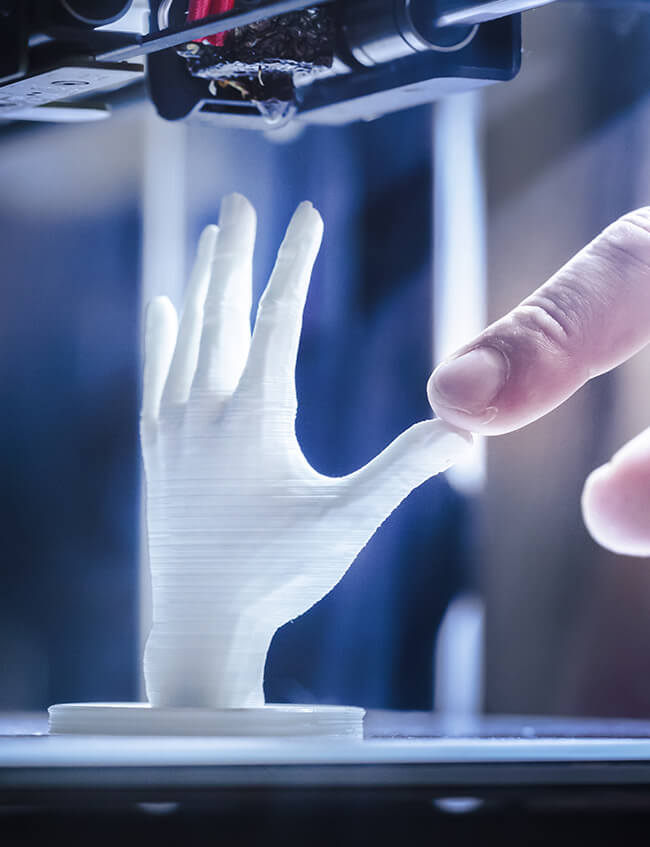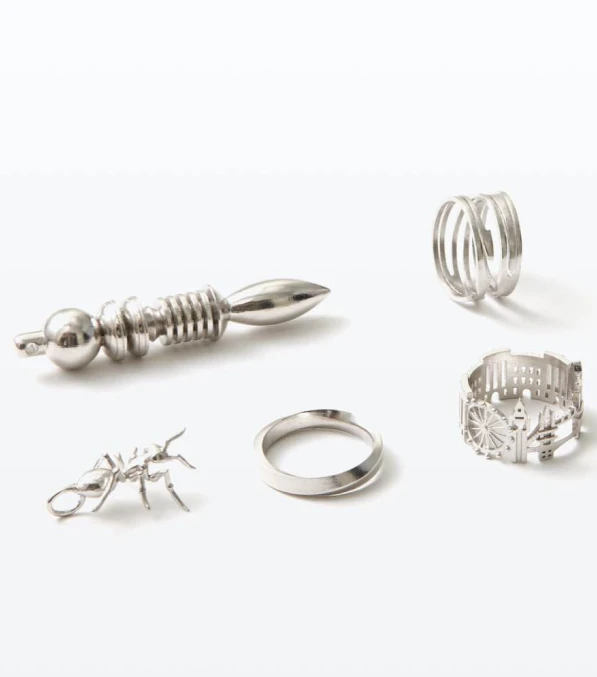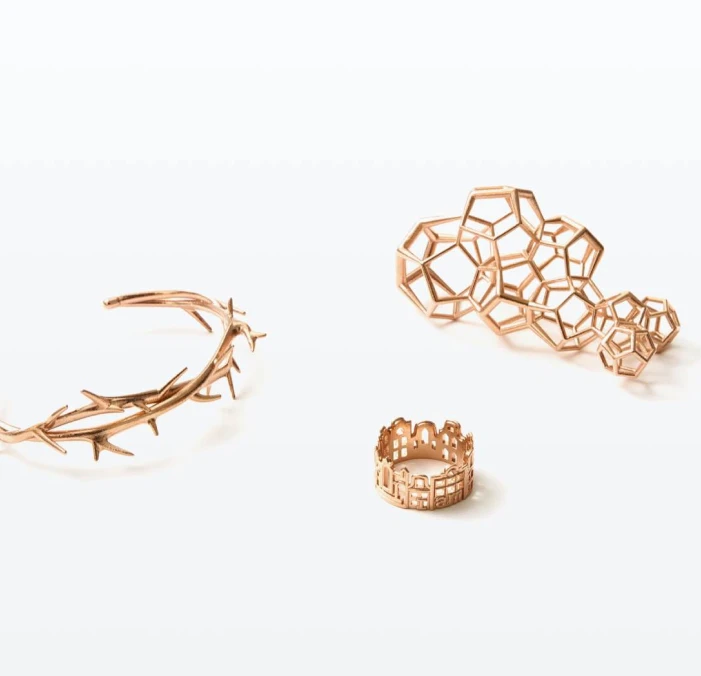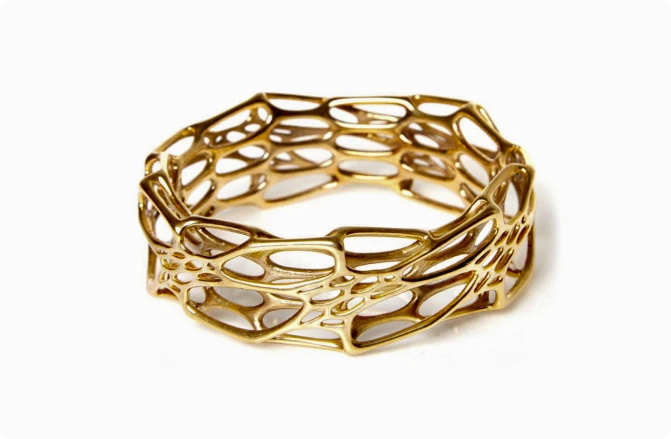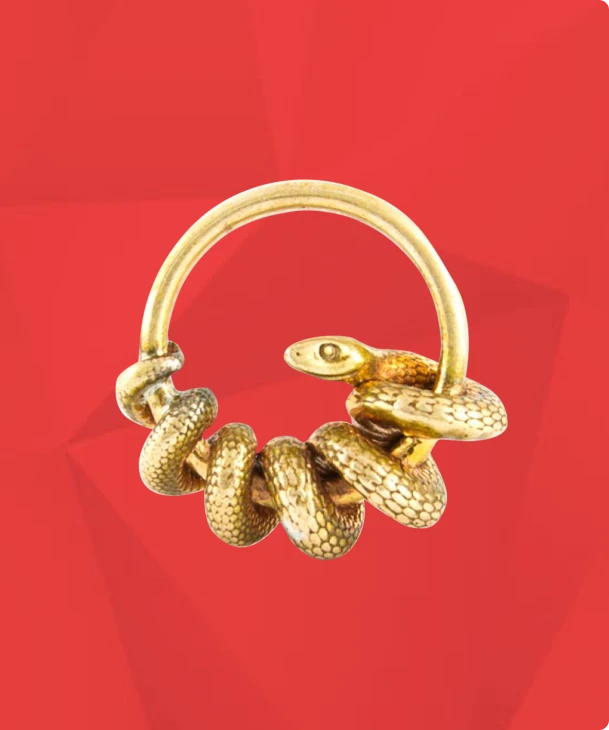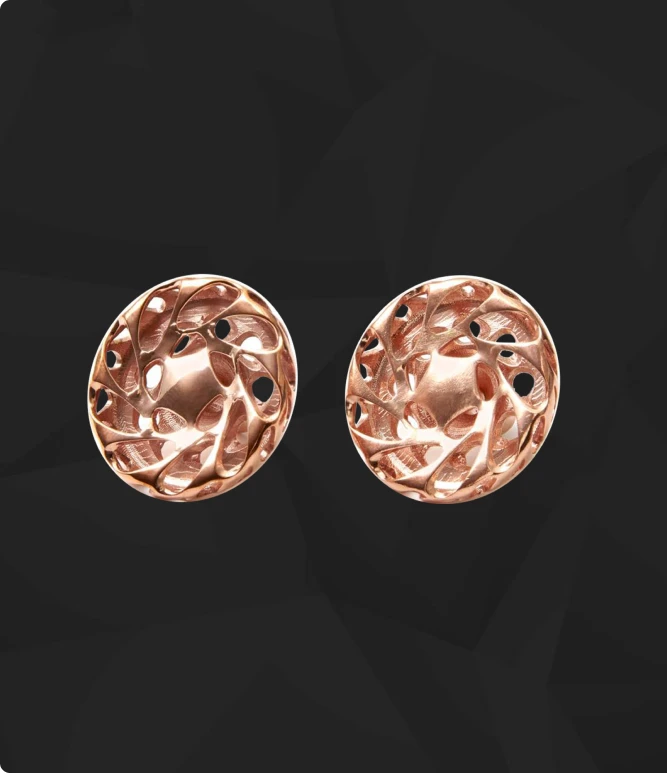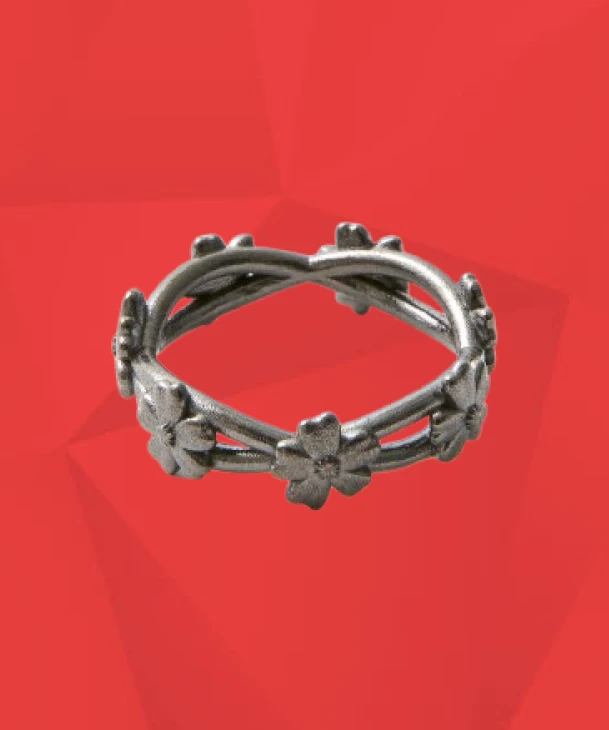3D Printing & Lost Wax Casting
Casting with metal is a detailed, multi-step process. At Immaculate, we enhance this traditional method with modern technology—using 3D printing to create precise wax patterns for building plaster molds. Sprues are added to allow molten metal to flow through the mold. The original wax is then melted and drained away, giving rise to the term “lost wax casting.
Once the metal cools and solidifies, the plaster mold is carefully broken away. The metal part is then detached, and post-processing begins. This may include tumbling to polish the piece, or, where applicable, plating—for instance, metals like Brass can be plated in Gold or Rhodium for a premium finish.
Benefits of 3D printed Wax Casting include
- The ability to create professional-quality, innovative products that are difficult or impossible to produce using traditional manufacturing methods.
- Support for highly complex shapes, including designs with built-in intricacies such as interlocking parts.
- Exceptional surface finishes and enhanced durability, especially with corrosion-resistant materials like Copper.
Lost Wax Casting Materials
Immaculate customers can choose from a range of premium metals for 3D printing using Lost Wax Casting, including:
Brass
Composed of 80% copper, 15% zinc, and 5% tin, Brass is a copper alloy known for supporting intricate details and offering a classic metallic finish. While it naturally tarnishes over time, it can be polished to achieve a shiny, professional look. Brass is also available in Gold Plate and Rhodium options, along with Natural and Polished finishes.
Brass is ideal for applications such as prototypes, jewelry, home accessories, and miniatures.
For this material, 3D models must meet the following minimum and maximum bounding box sizes:
- Bounding Box Min: 2.4 × 2.4 × 0.6 mm
- Bounding Box Max: 89 × 89 × 100 mm
- Interlocking Parts Max: 75 × 75 × 40 mm
Bronze
A copper-tin alloy composed of 90% copper and 10% tin, Bronze is known for its rich red tone and natural marbling, featuring silver highlights that give it a vintage appeal. Ideal for parts with intricate detailing, Bronze may tarnish over time but can be polished to restore a like-new surface. Available in Natural and Polished finishes.
Bronze is well-suited for applications such as jewelry, fashion accessories, home decor, and prototypes.
For this material, 3D models must meet the following minimum and maximum bounding box sizes:
- Bounding Box Min: 2.4 × 2.4 × 0.6 mm
- Bounding Box Max: 89 × 89 × 100 mm
- Interlocking Parts Max: 75 × 75 × 40 mm
Copper
Known for its distinct red-orange hue that naturally oxidizes over time, Copper parts can be 3D printed using Lost Wax Casting with impressive detail. The result is a corrosion-resistant, professional-grade finish that develops character as it ages. Copper is available in Natural and Polished finishes.
With Lost Wax Casting, Copper is ideal for applications such as prototypes, heat accessories, and marine components.
For this material, 3D models must meet the following minimum and maximum bounding box sizes:
- Bounding Box Min: 2.4 × 2.4 × 0.6 mm
- Bounding Box Max: 89 × 89 × 100 mm
Gold
A premium metal used primarily for creating fine jewelry, Gold is available in yellow, white, rose, 14K, and 18K options. This is one of the highest quality materials Immaculate offers and is recommended for parts with intricate details and a professional, finished look and feel.
For this material, 3D models must meet the following minimum and maximum bounding box sizes:
- Bounding Box Min: 2.4 × 2.4 × 0.6 mm
- Bounding Box Max: 89 × 89 × 100 mm
Platinum
An extremely high-quality material, Platinum is widely favored for upscale jewelry. Composed of 95% Platinum and 5% Ruthenium, it’s ideal for showcasing intricate details with a refined, professional finish.
For this material, 3D models must be within the following minimum and maximum bounding box sizes:
- Bounding Box Min: 2.4 × 2.4 × 0.6 mm
- Bounding Box Max: 89 × 89 × 100 mm
Silver
A high-quality Sterling Silver alloy, at 92.5% silver, this material is used for jewelry as well as other skin-safe applications. Sterling Silver allows for intricate details to be included in parts, offering a professional, finished look and feel. While Silver can tarnish over time, it can easily be polished to restore a shiny surface. This material is also softer and more malleable, making it ideal for thinner structures.
Silver is available in Natural, Polished, Fine Detail Polished, and Antique finishes.
For this material, 3D models must be within the following minimum and maximum bounding box sizes:
- Bounding Box Min: 2.4 × 2.4 × 0.6 mm
- Bounding Box Max: 89 × 89 × 100 mm, 75 × 75 × 40 mm for Interlocking Parts
Ordering from Immaculate Saves You Time & Capital
Experience the efficiency of Immaculate’s cutting-edge technology and extensive material options to bring your designs to life with precision and detail. From uploading your files to receiving your manufactured parts, the process is seamless—just submit your design, get instant quotes, and choose from standard, priority, or rush delivery options. Explore our case studies, discover tailored manufacturing solutions, and get an instant quote today.

